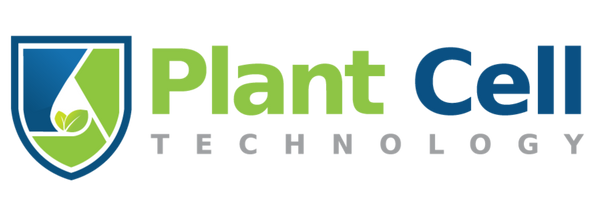
Meet Crescentia Mushobozi: A Tissue Culture Expert At World Vegetable Center
As a content and community manager, I leverage my expertise in plant biotechnology, passion for tissue culture, and writing skills to create compelling articles, simplify intricate scientific concepts, and address your inquiries. As a dedicated science communicator, I strive to spark curiosity and foster a love for science in my audience.


Introduction
Today, as the world faces food insecurity, climate change, significant agricultural losses, disturbed biodiversity, and the extinction of numerous plant and animal species, several technologies have proven invaluable in protecting our planet.
Tissue culture, introduced in 1902 by Gottlieb Haberlandt, is one of the most efficient plant propagation techniques. It is widely regarded as one of the most beneficial and profitable approaches for the large-scale multiplication of plants. This technique is particularly magical when it comes to conserving endangered plant species.
Tissue Culture Challenges and Solutions
Today, numerous hobbyists and plant lovers are trying this technique at home or in their small labs because of the numerous advantages it offers. However, the major challenge we face in tissue culture, which hinders our plants' success in vitro, is contamination. Tiny microbes sneak into tissue culture media and halt their growth, wasting our time and efforts.
But this can be tackled by using PPM™ (Plant Preservative Mixture™). This mixture stops microbial growth in your cultures and offers them all-round protection. This exclusive product is sold by Plant Cell Technology.
PCT’s R&D team has been working for decades developing solutions that make tissue culturists' lives easier. One such product that adds to this efficiency line is the Biocoupler™.
If you are looking to produce a thousand plants in a small space at a lower cost, this bioreactor is for you. It’s easy to operate, can be automated using BioTilt™, takes up less space, can be easily assembled and cleaned, and its parts can be readily found in the market.
I know I may sound like I’m bragging about our products, but this is based on what our customers share with us.
In this blog, I’m sharing the story of Crescentia, whose life was transformed using PPM™ and Biocoupler™ in her setup. So, let’s hear her story in her own words.
Case Study of Crescentia Mushobozi: A Tissue Culture Expert
Eight years ago, my journey into the world of tissue culture began, albeit unexpectedly. My father ran a tissue culture lab specializing in bananas, potatoes, and coffee. Back then, my aspirations were firmly set on becoming a doctor, so I paid little attention to the fascinating work happening in his lab.
However, after graduating in 2020, I found myself assisting in media preparation, and that’s when everything changed. I fell in love with the detailed processes of tissue culture—the precision required in aseptic techniques, the careful crafting of growth media, and the meticulous subculturing of plants.
My first major challenge came with banana tissue culture. Bananas are particularly prone to diseases and contamination, making them notoriously difficult to work with. Despite these challenges, my initial hands-on experience with banana plants was invaluable.
I learned how to troubleshoot contamination issues, refine my techniques, and develop a deeper understanding of plant tissue culture.

Facing Challenges, Finding Solutions
In 2022, a significant opportunity came my way when I joined the World Vegetable Center, an international research facility dedicated to vegetable innovation. There, I was selected to be part of the Youth Hub Innovation program, which encourages young scientists to be creative and innovative. I was given the daunting task of renovating and creating a functional tissue culture lab from the ground up.
The challenges were immense—I had to design the lab layout, procure equipment, and establish protocols, all while ensuring everything met the necessary scientific standards. There were moments of doubt and frustration, but I pushed through.
A Turning Point With Plant Cell Technology
One pivotal moment in my journey was discovering the PCT (Plant Cell Technology) page on Instagram. Seeing a community of tissue culture enthusiasts and experts sharing their experiences and advice made me realize I wasn't alone. This newfound sense of community reignited my passion and introduced me to critical tools like the Biocoupler™ and Plant Preservative Mixture™ (PPM™).

PPM™, in particular, was a game-changer, drastically reducing my contamination problems and enabling me to focus more on refining my techniques and protocols.
Over the past two years, my work with PPM™ and other advanced tools has led to significant breakthroughs. My mentor was thrilled with my progress, and I successfully developed new protocols for potato tissue culture.
Using the Biocoupler™ has been especially beneficial; it simplifies the storage of potato eyes during the initiation process, reducing sample waste and improving efficiency. One key tip I’ve discovered is the effectiveness of using liquid media for the initial inoculation instead of solid media.
This approach has significantly helped in controlling contamination and promoting healthier growth.

Tissue Culture: A Passion for Transformation
Tissue culture, I firmly believe, is a transformative technology that can revolutionize agriculture by providing farmers with high-quality, disease-free planting material. As a biotech farmer, I am deeply committed to advocating for this technology. I actively work to educate and support fellow farmers in understanding and adopting tissue culture methods.
By sharing my experiences and knowledge, I hope to help them improve their yields, ensure sustainable farming practices, and ultimately enhance food security and agricultural resilience.
Unlock The Potential of Your Tissue Culture Lab With PCT’s Innovative Products
Crescentia's journey into the world of tissue culture exemplifies the transformative power of dedication, innovation, and the right tools. Her story highlights how pivotal products like Plant Preservative Mixture™ (PPM™) and the Biocoupler™ can be in revolutionizing tissue culture labs.
These tools drastically reduced contamination issues and streamlined processes, enabling Crescentia to focus on refining her techniques and developing new protocols, especially for challenging crops like bananas and potatoes.
Her success is a testament to the efficacy of these innovative products in overcoming common tissue culture challenges.

Imagine the positive impact these advancements could have on your own lab!
PCT offers a comprehensive range of innovative products, including both high-performance chemicals like PPM™ and cutting-edge equipment like the Biocoupler™.
By incorporating these tools into your workflow, you can experience the same transformative results as Crescentia. Reduce contamination rates, optimize processes, and unlock the full potential of your tissue culture operation.
Visit our website or contact us today to explore how PCT's products can revolutionize your approach to plant propagation and propel your lab to new heights!
Blog Categories
View by Level
Popular Blogs

The Technical Intersection of Tissue Culture and Genome Editing
Introduction The ability to modify a plant's genetic code has progressed at a remarkable rate. With the advent of CRISPR-based...
Read More
The Science of Better Multiplication and Rooting in Tissue Culture
Every tissue culture hobbyist or professional eventually hits a plateau. You have a protocol that works, you have your medium...
Read MoreSubscribe to Our Newsletter
1 comment
Tissue culture help in economic purpose and in plant breeding to get plant that can meet required agronomics traits







Join the conversation
Your email address will not be published. Required fields are marked